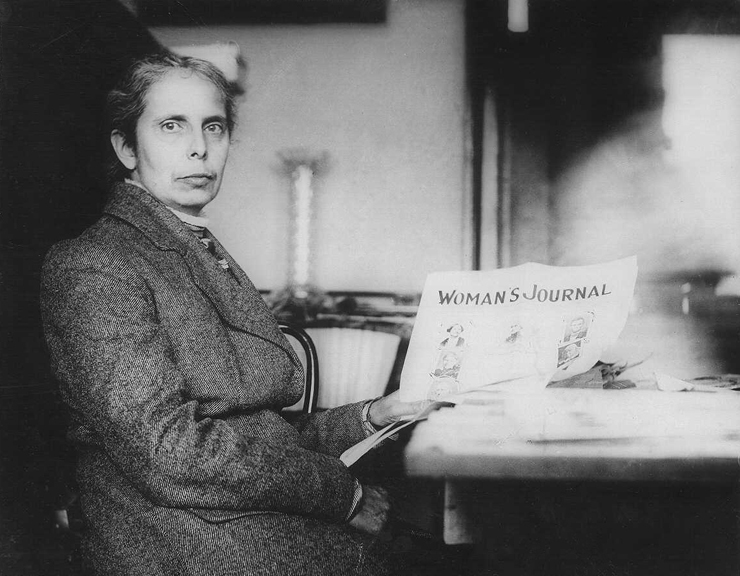
August 26, 2020, is the 100th anniversary of the federal government’s ratification of the 19th amendment pertaining to voting rights for women. The federal amendment mandates “The right of citizens of the United States to vote shall not be denied or abridged by the United States or by any State on account of sex.”
Dorchester’s most famous woman’s rights advocate was Lucy Stone. She moved to Dorchester in the early 1870s to become the editor of The Woman’s Journal newspaper. Lucy did not live to see the ratification. Her daughter, Alice Stone Blackwell, did witness the successful conclusion of the work her mother and so many other women worked for.
Alice took over the editorship of The Woman’s Journal after Lucy’s death in 1893. After graduating from Boston University, Alice had begun working for the paper started by her parents. By 1884, her name was alongside her parents on the newspaper’s masthead. After her mother’s death in 1893, Alice assumed almost sole editing responsibility of the paper.
In 1890, Alice helped unify the American Woman Suffrage Association and the National Woman Suffrage Associated into the National American Woman Suffrage Association and served as the new group’s recording secretary from 1890 to 1908.
She took up other causes, including temperance and befriending Armenians in the 180s She sold the oriental rugs from the house she inherited on Pope’s Hill to raise money for food for the Armenian people. She translated the work of many Armenian poets into English.
The following is from Notable American Women
After her graduation from Boston University where she excelled and was president of her class, she went to work in the offices of the Woman’s Journal, the paper edited by her mother. Over the next thirty-five years, Miss Blackwell bore the main burdens of editing the country’s leading woman’s rights newspaper–gathering copy, reading proof, preparing book reviews, and writing long columns of crisp, hard-headed arguments for female equality. Beginning in 1887 she also edited the Woman’s Column, a collection of suffrage items sent out free to newspapers round the country. She effected a truce between the American Woman Suffrage Association and Susan B. Anthony’s rival National Woman Suffrage Association. In 1890 the two organizations merged, and Miss Blackwell became recording secretary of the new National American Woman Suffrage Association.
Lucy Stone’s death in 1893 freed her daughter to find other evils to expose and underdogs to champion. For years she operated an informal employment service for needy Armenians, and she joined William Dudley Foulke and George Kennan in activating the Friends of Russian Freedom. She translated the poetry of oppressed peoples into English to widen American awareness. Her affiliations widened to include the Woman’s Christian Temperance Union, the Anti-Vivisection Society, the Women’s Trade Union League, the National Association for the Advancement of Colored People, and the American Peace Society. Postwar reaction turned her into a socialist radical. One Boston newspaper refused to print her militant letters because of the controversy they provoked. In 1930 she published Lucy Stone, a biography of her mother.
Some of her books include:
Growing Up in Boston’s Gilded Age: The Journal of Alice Stone Blackwell, 1872–1874. This was her teenage diary.
Armenian Poems. (1896), translations
Songs of Russia. (1906)
Songs of Grief and Joy, translated from the Yiddish of Ezekiel Leavitt. (1908)
